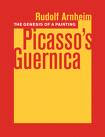My friend Tim Stone recommended that I read a chapter from Wendell Berry's Sex, Economy, Freedom, and Community titled "Christianity and the Survival of Creation." Berry presents a vision of the arts that departs quite nicely from the modern idea of creative genius. Here we find an ode to the craftsman. Berry moves technical skill to the center of the arts, and suggest that doing so may return the arts to their rightful place within human relatedness. I have transcribed a large chunk here for your enjoyment:
All of us are makers, within mortal terms and limits, of our lives, of one another's lives, of things we need and use.
This, Ananda Coomaraswamy wrote, is "the normal view," which "assumes... not that the artist is a special kind of man, but that every man who is not a mere idler of parasite is necessarily some special kind of artist." But since even mere idlers and parasites may be said to work inescapably, by proxy or influence, it might be better to say that everybody is an artist-- either good or bad, responsible or irresponsible. Any life, by working or not working, by working well or poorly, inescapably changes other lives and so changes the world. This is why our division of the "fine arts" from "craftsmanship," and "craftsmanship" from "labor," is so arbitrary, meaningless, and destructive. As Walter Shewring rightly said, both "the plowman and the potter have a cosmic function." And bad art in any trade dishonors and damages Creation.
Explaining "the perfection, order, and illumination" of the artistry of Shaker furniture makers, Coomaraswamy wrote, "All tradition has seen in the Master Craftsman of the Universe the exemplar of the human artist or 'maker by art,' and we are told to be 'perfect, even as your Father in heaven is perfect." Searching out this lesson, for us, of the Shakers' humble, impersonal, perfect artistry, which refused the modern divorce of utility and beauty, he wrote, "Unfortunately, we do not desire to be such as the Shaker was; we do not propose to 'work as though we had a thousand years to live, and as though we were to die tomorrow.' Just as we desire art but not the things that make for art ... we have the art that we deserve. If the sight of it puts us to shame, it is with ourselves that the reformation must begin."
Any genuine effort to "re-form" our arts, our ways of making, must take thought of "the things that make for art." We must see that no art begins in itself; it begins in other arts, in attitudes and ideas antecedent to any art, in nature, and in inspiration. If we look at the greatest artistic traditions, as it is necessary to do, we will see that they have never been divorced either from religion or from economy. The possibility of an entirely secular art and of works of art that are spiritless or ugly or useless is not a possibility that has been among us for very long. Traditionally, the arts have been ways of making that have placed a just value on their materials or subjects, on the uses and the users of the things made by art, and of the artists themselves. The have, that is, been ways of giving honor to the works of God. The great artistic traditions have had nothing to do with what we call "self-expression." They have not been destructive of privacy or exploitive of private life. Though they have certainly originated things and employed genius, they have no affinity with the modern cults of originality and genius. Coomaraswamy, a good guide as always, makes an indispensable distinction between genius in the moder sense and craftsmanship: "Genius inhabits a world of its own. The master craftsman lives in a world inhabited by other men: he has neighbors." The arts, traditionally, belong to the neighborhood. They are the means by which the neighborhood lives, works, remembers, worships, and enjoys itself.
But most important of all, now, is to see that the artistic traditions understood every art primarily as a skill or craft and ultimately as a service to fellow creatures and to God. An artist's first duty, according to this view, is technical. It is assumed that one will have talents, materials, subjects--perhaps even genius or inspiration or vision. But these are traditionally understood not as personal properties with which one may do as one chooses but as gifts of God or nature that must be honored in use. One does not dare to use these things without the skill to use them well. As Dante said of his own art, "far worse than in vain does he leave the shore ... who fishes for the truth and has not the art." To use gifts less than well is to dishonor them and their Giver. There is no material or subject in Creation that in using, we are excused from using well; there is no work in which we are excused from being able and responsible artists.
Wendell Berry, Sex, Economy, Freedom and Community, pp. 110 - 113.
Wednesday, January 28, 2009
Subscribe to:
Post Comments (Atom)




No comments:
Post a Comment